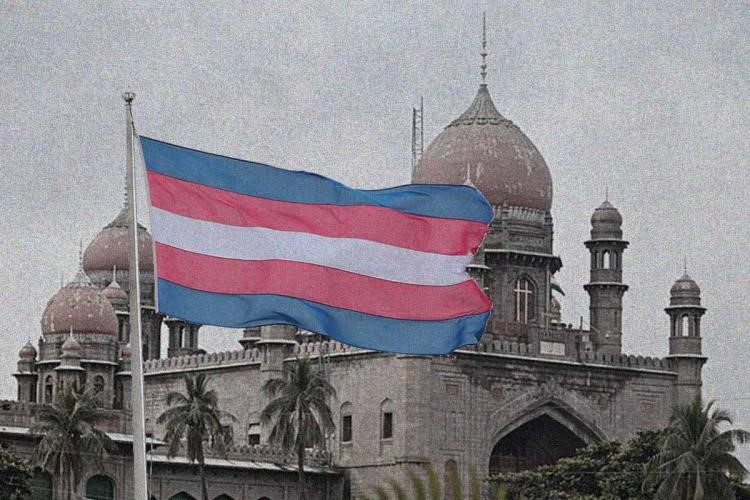Description

Disclaimer: Copyright infringement not intended.
Context
- The Telangana High Court struck down the Telangana Eunuchs Act of 1919, terming it “unconstitutional” and an intrusion into the private sphere of transgender people, “as well as an assault on their dignity”.
What was the Telangana Eunuchs Act?
- Previously called the Andhra Pradesh (Telangana Area) Eunuchs Act, it was first enacted in 1919 in the Hyderabad Nizam’s dominions and was applicable to “eunuchs”.
- It defined “eunuchs” as “all persons of the male sex who admit to be impotent or who clearly appear to be impotent on medical inspection”.
- As per the Act, all eunuchs were mandated to register with the authorities. This included information such as their places of residence, for they were “reasonably suspected of kidnapping or emasculating boys, or of committing unnatural offences or abetting… said offences.”
- Allowing for the arrest of transgender people without a warrant, the Act sought to imprison them for up to two years if they were found “in female clothing or ornamented or singing, dancing, or participating in public entertainment in a street or a public place or where a transgender person is found in the company of a boy below the age of sixteen years.”
- Arguing that the Act is “outdated legislation”, at complete odds with modernity, it was challenged. Activists said that the reference to unnatural offences in the Act comes from IPC Section 377, which criminalised homosexuality and was read down by the Supreme Court in 2018.
What was the case?
- In Vasanta Mogli vs. The State of Telangana, three related PILs (public interest litigations) were heard together and disposed of by a common ruling on July 6.
- In September 2018, transgender activist Vyjayanti Vasanta Mogli and others filed petitions stating that the law was “unconstitutional, discriminatory, and stigmatised the eunuch and transgender community”. The Telangana HC ordered that no arrest or prosecution would be carried out under the Act, while admitting the first PIL in this case.
- A second petition sought HC directions to Telangana Government to formulate a “comprehensive policy” to protect transgender people’s rights, including the provision of reservations in education and employment. It also sought to establish Transgender Welfare Boards, similar to the ones in West Bengal, Rajasthan, Chhattisgarh, and Maharashtra.
- The third PIL sought relief from the authorities in the form of rations, health facilities, etc. for transgender people during Covid-19. It also sought the extension of the benefits of the state’s Aasara Scheme to transgender people.
- The 2014 scheme provides a 1,000-rupee monthly pension to “the most vulnerable sections of society”, including the disabled, HIV/AIDS patients, widows, etc. The amount was revised to Rs 2,016 in 2019.

What was the status of this case until now?
- Although the “initial thrust of the PIL was confined to vaccination” of transgender people, the issues raised in the PIL transcended the “limited issue”, the court noted.
- Related to the third PIL on access to welfare benefits, in 2020, the court directed the state to submit a report on the number of transgender people living in major cities, the steps taken by the state to ensure their access to foodgrains, medicines, etc. In June that year, when the court considered the government’s reports on the matter, it found them to be “highly vague” and lacking essential data.
- After this, the court was informed by the government of its measures, such as Covid-19 protection, that was inclusive of transgender patients. Additionally, all transgender people would be given free 10 kg of rice monthly until November 2020, the court was told.
- However, the petitioners asked the Court to keep the plea pending so the Court could monitor whether the Government orders were being implemented. This was accepted by the court. Two years later, the issue came to light when the court directed the Telangana government to provide a centre, inside district hospitals, for vaccinating transgender people without insisting on the Aadhar card, as many of them did not possess one.
What did the Telangana government say in the court?
- Special government pleader Andapalli Sanjeev Kumar contended that the Transgender Persons (Protection of Rights) Act of 2019, enacted by the Central government, was the “first statutory enactment” for the betterment of the community. But it covered only welfare measures and there was no provision for specific offences attributed to them, such as “kidnapping or emasculating boys or committing unnatural offences”, the state submitted.
- It claimed that the Act under challenge governed and addressed these offences. It also said that the 2019 Act had taken care of the matter of discrimination against the community, and consequently sought the plea’s dismissal.
What has the Telangana High Court said?
- Pointing out that the law “criminalises the entire transgender community”, a bench of the Telangana High Court comprising Chief Justice Bhuyan and Justice Reddy struck down the law.
- It was deemed violative of Article 14 (right to equality) and Article 21 (right to protection of life and personal liberty).
- The bench observed that the definition of eunuch is not only against the definition of transgender person under Section 2(k) of the Transgender Persons Act of 2019, but also opposed to the interpretation given by the Supreme Court to the word “transgender”.
- The court also found that the Telangana Eunuchs Act is similar to Part II of the Criminal Tribes Act, 1871, which criminalised certain tribal groups. The draconian law’s provision similarly categorised eunuchs and required a register to be maintained on their details. While the British-era law was frequently amended and eventually revoked, the Telangana law was not.
What about the other two petitions?
- The court directed the state government to provide pension to eligible transgender people under the Aasara Pension Scheme. Reiterating that the transgender community “is one of the most deprived, neglected, and discriminated against communities in the State” and the country, the court added that they are recognised as belonging to the socially and economically backward class and thus “fulfil the eligibility requirement” under the Scheme.
- It further asked the Telangana Government to enact a law to provide reservation for transgender people. It observed that no reservation has been given to the community, despite the SC saying so in the 2014 National Legal Services Authority (NALSA) judgement.
- “It is high time steps are taken in this regard,” the court said. Until the Telangana Legislative Assembly enacts any law providing for such reservation, the State of Telangana may “issue necessary Government orders/administrative instructions providing for such reservation to persons belonging to transgender community,” the court ruled.
- Also, while the government had set-up a State Welfare Board in October 2022, the court has now said that it should oversee the proper implementation of the Transgender Persons Act and the Transgender Persons Rules.
Transgender Act: https://iasgyan.in/ig-uploads/pdf/9913790.pdf
https://www.ibanet.org/article/0F3AE21B-0170-4BF7-95DD-45B07EF1CAF6
|
PRACTICE QUESTION
Q. The Transgender Persons Act is an indication that India is making a move towards a more inclusive and progressive society where the opportunities for persons will not be limited on the basis of their gender. This should ensure that employment standards are brought in line with international standards. Elucidate.
|














